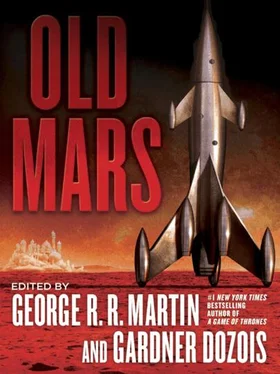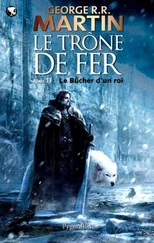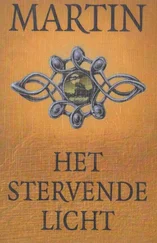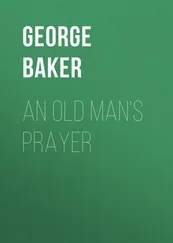Count Jack required time and space alone to prepare his entrance. This was the time he changed from Count James Fitzgerald to the Country Count from Kildare. It was a deeply private transformation and one I knew I would never be permitted to watch. The stage was a temporary rig bolted together from skymaster spares. The hovering ships lit the stage with their searchlights. A follow spot tracked me to the piano. I bowed, acknowledged the applause of the audience, flicked out the tails of my evening coat, and sat down. That is all an accompanist need do.
I played a few glissandi to check that the piano was still functioning after its disrespectful handling by the dock crew. Passable, to the tin ears of Skyfleet engineers. Then I played the short overture to create that all-important sense of expectation in the audience and went straight into the music for Count Jack’s entrance. The spotlight picked him up as he swept onto the stage, “I’ll Take You Home Again, Kathleen” bursting from his broad chest. He was radiant. He commanded every eye. The silence in the deep Martian night was the most profound I think I have ever heard. He strode to the front of the stage. The spotlight adored him. He luxuriated in the applause as if it were the end of the concert, not the first number. He was a shameless showman. I lifted my hands to the keyboard to introduce “Torna a Surriento.”
And the night exploded into towering blossoms of flame. For an instant, the audience sat transfixed, as if Count Jack had somehow summoned the most astonishing of operatic effects. Then the alarms blared out all across the camp. Count Jack and I both saw clearly the spider-shapes of War Tripods, tall as trees, wading through the flames. Heat rays flashed out, white swords, as the audience scattered to take up posts and weapons. Still, Count Jack held the spotlight, until an Onbashi leaped up, tackled him, and knocked him out of the line of fire just as a heat ray cut a ten-thousand-degree arc across the stage. He had no English, he needed no English. We ran. I glanced back once. I knew what I would see, but I had to see it: my piano, that same cheap, sturdy hire upright piano that I had shipped across 100 million miles of space, through the concert halls and grand opera houses, on dusty roads and railways, down calm green canals, my piano, exploding in a fountain of blazing hammers and whipping, melting wires. A War Tripod strode over us, its heat-ray arms swiveling, seeking new targets. I looked up into the weaving thicket of tentacles beneath the hull, then the raised steel hoof passed over me and came down squarely and finally on our dressing-room tent.
“My Krug!” Count Jack cried out.
A heat ray cut a glowing arc of lava across the ground before me. I was lucky—you cannot dodge these things or see them coming, or hear their ricochets. They are light itself. All you can be is moving in the right direction, have the right momentum: be lucky. Our Onbashi was not lucky. He ran into the heat ray and vanished into a puff of ash. A death so fast, so total that it became something more than death. It was annihilation.
“Maestro! With me!”
Count Jack had been standing, staring, transfixed. I took his hand, his palm still damp with concert sweat, and skirted around the end of the still-smoking scar. We ducked, we ran at a crouch, we zigzagged in our tails and dickey bows. There was no good reason for it. We had seen it in war movies. The Uliri war machines strode across the camp, slashing glowing lava tracks across it with their heat rays, their weapon-arms seeking out fresh targets. But our soldiers had reached their defensive positions and were fighting back, turning the Uliri’s own weapon against them and bolstering it with a veritable hail of ordnance. The troopers who had manned our spotlights now turned to the heat rays. Skymasters were casting off, their turret gunners seeking out the many-eyed heads of the Uliri Tripods. The war machine that had so hideously killed the brave Onbashi stood in the river, eye blisters turning this way, that way, seeking targets. A weapon-arm fixed on us. The aperture of the heat ray opened. Hesitated. Pulled away. Grasping cables uncoiled from between the legs. We scuttled for cover behind a stack of barrels—not that they would have saved us. Then a missile cut a streak of red across the night. The war machine’s front left knee joint exploded. The machine wavered for balance on two, then a skymaster cut low across the canal bank and severed the front right off at the thigh with a searing slash of a heat ray. The monster wavered, toppled, came down in a blast and crash and wave of spray, right on top of the boat that would have carried us to safety. Smashed to flinders. Escape hatches opened; pale shapes wriggled free, squirmed down the hull toward land. I pushed Count Jack to the ground as the skymaster opened up. Bullets screamed around us. Count Jack’s eyes were wide with fear, and something else, something I had not imagined in the man: excitement. War might be brutal and ghastly and ugly, as he had declaimed on the Empress of Mars , but there was a terrible, primal power in it. I saw the same thrill, the same joy, the same power that had commanded audiences from Tipperary to Timbuktu. I saw it and I knew that, if we ever returned to Earth and England, I would ever be the accompanist, the amanuensis, the dear boy; and that even if he sang to an empty hall, Count John Fitzgerald would always be the Maestro, Sopratutto. All there was in me was fear, solid fear. Perhaps that is why I was brave. The guns fell silent. I looked over the top of the barrels. Silvery Uliri bodies were strewn across the dock. I saw the canal run with purple blood like paint in water.
The skymaster turned and came in over the canal to a low hover. A boarding ramp lowered and touched the ground. A skyman crouched at the top of the ramp, beckoning urgently.
“Run, Maestro, run!” I shouted, and dragged Count Jack to his feet. We ran. Around us heat rays danced and stabbed like some dark tango. A blazing war machine stumbled blindly past, crushing tents, bivouacs, repair sheds beneath its feet, shedding sheets of flame. Ten steps from the foot of the ramp, I heard a noise that turned me to ice: a great ululating cry from the hills behind the camp, ringing from horizon to horizon, back and forth, wash and backwash, a breaking wave of sound. I had never heard it, but I had heard of it, the war song of the Uliri padva infantry. A hand seized mine: the skyman dragged me and Count Jack like a human chain into the troop hold. As the ramp closed, I saw the skyline bubble and flow, like a silver sheen of oil, down the hillside toward us. Padvas. Thousands of them. As the skymaster lifted and the hull sealed, the last, the very last sight I had was of Yuzbashi Osman looking up at us. He raised a hand in salute. Then he turned, drew his sword, and, with a cry that pierced even the engine drone of the skymaster, every janissary of Oudeman Camp drew his blade. Sword points glittered, then they charged. The skymaster spun in the air, I saw no more.
“Did you see that?” Count Jack said to me. He gripped my shoulders. His face was pale with shock, but there was a mad strength in his fingers. “Did you? How horrible, how horrible horrible. And yet, how wonderful! Oh, the mystery, Faisal, the mystery!” Tears ran down his ash-smudged face.
We fled through the labyrinth of the night. We had no doubt that we were being pursued through those narrow, twining canyons. The skycaptain’s pinger picked up fleeting, suggestive contacts, of what we had all heard: terrible cries, echoes of echoes in the stone redoubts of Noctis, far away but always, always, always keeping pace with us. The main hold of the skymaster was windowless, and though the skycaptain spoke no English, he had made it most clear to us that we were to keep away from his crew, whether they were in engineering, the gun blisters, or the bridge and navigation pods. So we sat on the hard steel mesh of the dimly lit cargo hold, ostensibly telling old musician stories we had told many times before, pausing every time our indiscriminate ears brought us some report of the war outside. Hearing is a much more primal sense than vision. To see is to understand. To hear is to apprehend. Eyes can be closed. Ears are ever open. Maestro broke off the oft-told story of singing for the Pope, and how thin the towels were, and what cheap bastards the Holy See had turned out to be. His ears, as I have said, were almost supernaturally keen. His eyes went wide. The Twav battledores on their perches in the skymarine roosts riffled their scales, shining like oil on water, and shifted their grips on their weaponry. A split second later, I heard the cries. Stuttering and rhythmic, they rose over three octaves from a bass drone to a soprano, nerve-shredding yammer. Two behind us, striking chords and harmonics from each other like some experimental piece of serialist music. Another answered, ahead of us. And another, far away, muted by the wind-sculpted rock labyrinth. A fifth, close, to our right. Back and forth, call and response. I clapped my hands over my ears, not from the pain of the shrill upper registers, but at the hideous musicality of these unseen voices. They sang scales and harmonies alien to me, but their music called the musician in me.
Читать дальше












